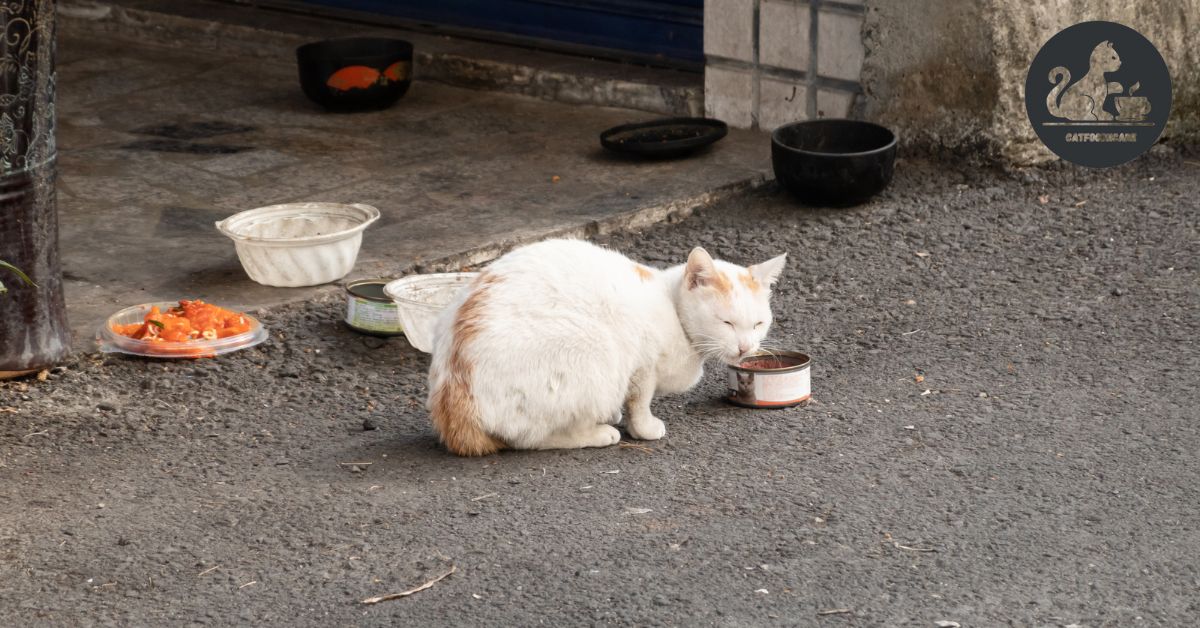Cats are known for their finicky eating habits, but have you ever wondered if they can eat carrots? Carrots are a popular root vegetable among humans, but can they be a part of a cat’s diet? The answer is yes, cats can eat carrots. However, there are a few things to consider before adding this crunchy vegetable to your feline friend’s meal plan.
Raw carrots can be a healthy snack for cats, providing them with essential nutrients like Vitamin A, Vitamin B6, and Vitamin K1. They are also a good source of fiber, which can help with digestive issues. However, cats are carnivores by nature, meaning their bodies are designed to digest animal protein, not plant matter. Therefore, while carrots can be a fun and healthy treat, they should not replace regular cat food in your pet’s diet.
It’s also important to note that while carrots are low in calories, they do contain natural sugars. Too much sugar can lead to weight gain and other health issues over time, so it’s best to feed your cat carrots in moderation.
So, next time you’re chopping up a carrot for dinner, feel free to toss a small, bite-sized piece to your cat. Just remember, while carrots can be a safe snack for cats, they should be an occasional treat, not a staple in their diet.
What Do Veterinarians Say about Feeding carrots to Cats?
Veterinarians agree that cats can eat carrots, but it’s important to serve them correctly. Raw carrots can be hard for cats to chew and may cause digestive issues. It’s best to serve your cat carrot in small, bite-sized pieces or cooked until soft.

Carrots are a source of vitamins like Vitamin B6 and Vitamin K1, but the main benefit is beta carotene, which turns into Vitamin A in the body. Cats need Vitamin A for proper development and eye health. However, cats can’t convert carotene to Vitamin A as efficiently as humans, so they still need animal protein in their diet.
While carrots are a healthy snack, they should not replace regular cat food. Carrots have natural sugars that can increase a cat’s blood sugar levels if eaten in large amounts. Also, cats lack the taste receptors to enjoy sweet foods.
Remember, every cat is different. Some may enjoy a piece of carrot as an occasional treat, while others may not like them at all. Always introduce new foods slowly to avoid any digestive tract issues.
Lastly, avoid feeding your cat carrot cake or any other human foods that contain carrots. These foods often have other ingredients that are not safe for cats. Stick to plain, cooked carrots for a safe and healthy treat.
Can Cats Eat Carrots?
Yes, cats can eat carrots. Carrots are a safe vegetable and can be a healthy snack for your cat. However, cats are carnivores, so their diet should primarily consist of animal protein. Carrots should only be given as an occasional treat.
Raw carrots can be hard for cats to chew and may cause digestive issues. It’s best to give your cat a cooked carrot, cut into small, bite-sized pieces. Cooking the carrot makes it easier for your cat to digest.
Carrots are a good source of vitamins, like Vitamin B6 and Vitamin K1. They also contain beta carotene, which is good for eye health. But remember, cats can’t convert carotene to Vitamin A as efficiently as humans can. So, carrots shouldn’t replace regular cat food that’s specially formulated to meet their nutritional needs.
While carrots have health benefits for humans, the nutritional benefits for cats are limited. Cats lack the taste receptors for sweet foods, so they might not enjoy the natural sugars in this root vegetable.
Remember to introduce any new food item slowly into your cat’s diet to avoid any allergic reaction or digestive tract issues. Always consult with your vet before making any significant changes to your cat’s daily food intake.
While carrots are not harmful, they should only be given in moderation. They can be a low-calorie food option for cats needing weight loss, but they should not replace a balanced diet of high-quality food.
Nutritional Benefits of Carrots for Cats?
Cats can enjoy a variety of human foods, including carrots. Here are some nutritional benefits of carrots for cats:
- Raw carrots are a low-calorie food that can be a healthy snack for cats. They are an excellent source of vitamins, including Vitamin A, Vitamin B6, and Vitamin K1. These vitamins are essential for a cat’s eye health, heart health, and brain health.
- Carrots are rich in beta carotene, which the body converts into Vitamin A. This is beneficial for a cat’s eye health and can help prevent cognitive decline and lung cancer.
- Carrots are a good source of fiber, which can aid in digestion and help manage a cat’s weight. The fiber in carrots can also help balance blood sugar levels, making them a safe snack for cats with diabetes.
- While cats are carnivores and need animal protein, adding some vegetables like carrots to their diet can provide additional nutrients. However, carrots should be given in moderation and should not replace regular cat food.
- Carrots can be served raw, cooked, or as a treat in small, bite-sized pieces. Avoid giving your cat carrot cake or other foods with added sugars, as cats lack the taste receptors to enjoy sweet flavors and too much sugar can lead to health issues over time.
- Always remember to introduce any new food item to your cat’s diet gradually to avoid any digestive issues or allergic reactions.
- Lastly, while carrots offer many health benefits, they should not be the main part of a cat’s diet. Cats need a balanced diet that includes high-quality animal protein, essential amino acids, and a small amount of vegetables.
Remember, carrots are a healthy treat, not a meal replacement. Always consult with your vet before making any major changes to your cat’s diet.
Potential Health Risks of Feeding Carrots to Cats?
- Feeding raw carrots to cats may pose potential health risks. Although carrots are a healthy snack for humans, they may not be beneficial for cats.
- Cats are carnivores and their bodies are designed to digest animal protein. They lack the necessary enzymes to break down plant materials like carrots effectively, which can lead to digestive issues.
- Carrots are high in natural sugars. While these sugars are healthy for humans, they can cause a spike in a cat’s blood sugar levels, which can be harmful, especially for cats with diabetes.
- While carrots are a good source of vitamins like Vitamin B6 and beta carotene, cats cannot convert beta carotene into Vitamin A, an essential nutrient for them.
- Carrots can also pose a choking hazard if not cut into small, bite-sized pieces.
- Raw carrots are hard and can cause dental issues or damage to a cat’s digestive tract if not properly chewed.
- Some cats may have an allergic reaction to carrots, leading to symptoms like vomiting, diarrhea, and abdominal pain.
- Lastly, while carrots are low in calories, they should not replace regular cat food in a cat’s diet. Cats need a balanced diet with animal protein for proper development and health.
How to Feed Carrots to Cats Safely?
Feeding carrots to cats can be a healthy snack option, but it needs to be done correctly. Here’s a step-by-step guide on how to feed carrots to cats safely.
Step 1: Choose the Right Carrots
Opt for fresh, raw carrots over canned or frozen ones. Raw carrots are an excellent source of vitamins like Vitamin A, Vitamin B6, and Vitamin K1. They also contain beta carotene, which is good for eye health.
Step 2: Wash and Prepare the Carrots
Wash the carrots thoroughly to remove any dirt or pesticides. Then, cut them into small, bite-sized pieces. Cats have small mouths and sharp teeth designed for tearing meat, not for chewing hard, solid food. So, small pieces will be easier for them to eat.
Step 3: Cook the Carrots
Although raw carrots are safe for cats, they might find cooked carrots easier to eat and digest. Boil the carrots until they are soft, but not mushy. Avoid adding any seasoning or butter. A plain carrot is the safest option for cats.
Step 4: Cool Down the Carrots
Before serving, let the cooked carrots cool down. Hot food can burn your cat’s mouth.
Step 5: Serve the Carrots
You can serve the carrots alone as a treat, or mix them with your cat’s regular food. Remember, carrots should not replace your cat’s main diet. Cats are obligate carnivores, which means their bodies need animal protein to function properly. Carrots should only be an occasional treat, not a staple in their diet.
Step 6: Monitor Your Cat
Keep an eye on your cat while they’re eating carrots. If they show signs of choking or digestive issues, remove the carrots immediately. Also, if your cat has diabetes, consult with a vet before feeding them carrots. Carrots contain natural sugars, which can affect blood sugar levels.
Step 7: Store Leftover Carrots Properly
If there are leftover carrots, store them in a sealed container in the fridge. They can be a healthy treat for your cat for a couple of days.
Remember, every cat is different. Some might enjoy the taste and texture of carrots, while others might not. Always introduce new foods to your cat slowly and in small amounts. And, always consult with your vet before making any significant changes to your cat’s diet.
Conclusion
Cats can eat octopus but it should be given as an occasional treat and not as a regular part of their diet. Cats are carnivores and their bodies are designed to process animal protein. While octopus can provide some nutritional benefits, it should never replace a balanced diet of high-quality cat food. If you decide to give your cat octopus, make sure it is cooked and cut into small, bite-sized pieces to prevent choking. Always monitor your cat when introducing new foods to their diet to watch for any allergic reactions or digestive issues.
One thought on “Can Eats Eat Carrots?”
Leave a Reply
Recent Posts
10 Best Canned Cat Foods of 2024, According to Veterinarians
Inside this expert-backed list of 2024's top wet cat foods, discover why veterinarians trust these brands for optimal feline nutrition.
Grab expert insights into the top-rated wet cat foods that veterinarians trust most, and discover why some brands outshine...


Your article helped me a lot, is there any more related content? Thanks!